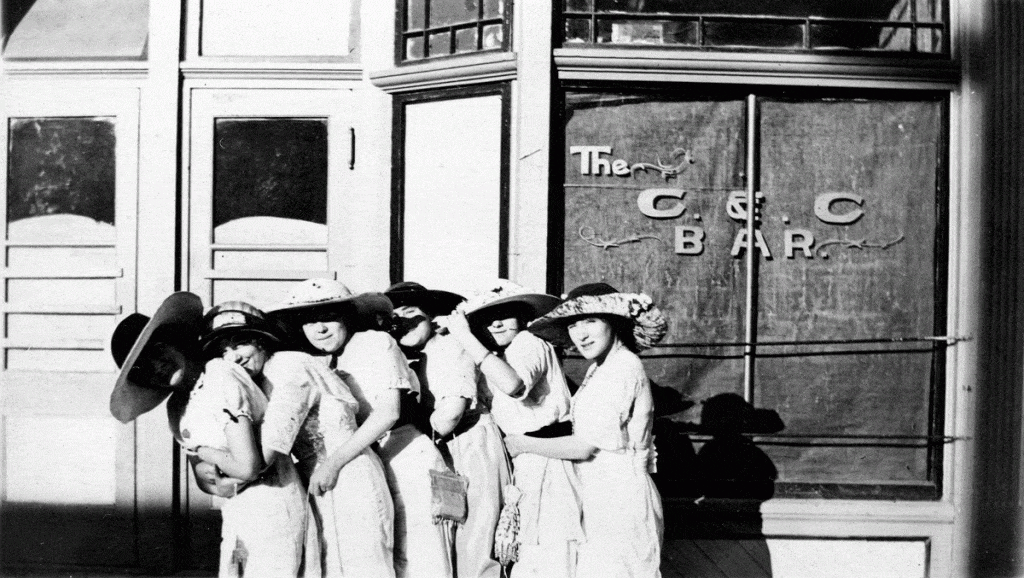The Park City Museum’s current traveling exhibit titled “Spirited: Prohibition in America,” explores the history of American culture and society during the era in which the production, transportation, and sale of alcohol was illegal. Women’s groups like the Woman’s Christian Temperance Union were instrumental in passing Prohibition nationwide in 1920. Let’s learn a little about women and alcohol.
One thing to keep in mind is that social norms often dictated women keep away from bars altogether. When women and alcohol did mix in a negative way, there would usually be stories about the incidents in the local paper.

Credit: Park City Historical Society and Museum, Thomas F. Hansen Collection
One story in the Park Record told of an enraged woman who went to the Last Chance Saloon to fetch her husband and break up his poker game. She pulled her husband from his chair and gave the others at the table a “tongue lashing that they would remember for some time.” Not only did she demand her husband’s money back from the game, she also threatened to hurt all men present with a bar chair. The woman and her husband’s names were never mentioned, thus guaranteeing their privacy from the historical record.
Another story tells of a Mrs. Steele, found drunk behind a building in town. After a police officer questioned her and received conflicting answers, she was arrested and jailed. Mrs. Steele begged for freedom the next morning in court and Judge Lockhart set her free. She was found later the afternoon drunk in back of a restaurant. She was again arrested and taken to jail. Judge Lockhart fined her ten dollars which she was unable to pay, necessitating a longer jail stay.
During Prohibition itself, stories of women and alcohol continued to show up in the Park Record. In 1930, Mrs. Ina Lippman was arrested for illegal possession of liquor. She was known as a persistent violator of Prohibition laws. She pleaded not guilty in court, demanding a jury trial. The jury found her guilty.
Mrs. Olga Hvartin was arrested for possession of liquor. She had a still in her home with a large quantity of liquor to sell. The liquor was confiscated by police and she was taken to court. She pleaded guilty. As a widow with children at home, the fine she received was the lowest available, $50. The Park Record, in a rare statement against Prohibition, presented Mrs. Hvartin as an example of the restrictive laws making criminals out of both men and women.
It might not have been as common to see women in association with alcohol at the time, but it did happen.
Last call! “Spirited: Prohibition in America” is only in town for two more days. The Park City Museum is located at 528 Main Street. We are open 10 a.m. – 7 p.m., Monday through Saturday, and 12 – 6 p.m. on Sunday.